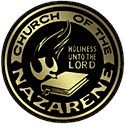Guy Fawkes and the Gun Powder Plot
It was intended to be the beginning of a great uprising of English Catholics, who were distressed by the increased severity of penal laws against the practice of their religion. The conspirators, who began plotting early in 1604, expanded their number to a point where secrecy was impossible. The group included Robert Catesby, John Wright, and Thomas Winter, the originators, Christopher Wright, Robert Winter, Robert Keyes, Guy Fawkes, a soldier who had been serving in Flanders, Thomas Percy, John Grant, Sir Everard Digby, Francis Tresham, Ambrose Rookwood, and Thomas Bates. Percy hired a cellar under the House of Lords, in which 36 barrels of gunpowder, overlaid with iron bars and firewood, were secretly stored. The conspiracy was brought to light through a mysterious letter received by Lord Monteagle, a brother-in-law of Tresham, on October 26, urging him not to attend Parliament on the opening day. The 1st earl of Salisbury and others, to whom the plot was made known, took steps leading to the discovery of the materials and the arrest of Fawkes as he entered the cellar. Other conspirators, overtaken in flight or seized afterward, were killed outright, imprisoned, or executed.

Today, one of the ceremonies which accompanies the opening of a new session of Parliament is a traditional searching of the basement by the Yeoman of the Guard. It has been said that for superstitious reasons, no State Opening of Parliament has or ever will be held again on November 5th. This, however, is a fallacy since on at least one occasion (in 1957), Parliament did indeed open on November 5th. The actual cellar employed for the storage of the gunpowder in 1605 by the conspirators was damaged by fire in 1834 and totally destroyed during the rebuilding of the Palace of Westminster in the Nineteenth Century. Also known as "Firework Night" and "Bonfire Night," November 5th was designated by King James I (via an Act of Parliament) as a day of thanksgiving for "the joyful day of deliverance." This Act remained in force until 1859. On the very night of the thwarted Gunpowder Plot, it is said that the populace of London celebrated the defeat by lighting fires and engaging in street festivities. It would appear that similar celebrations took place on each anniversary and, over the years, became a tradition. In many areas, a holiday was observed, although it is not celebrated in Northern Ireland.
Today, one of the ceremonies which accompanies the opening of a new session of Parliament is a traditional searching of the basement by the Yeoman of the Guard. It has been said that for superstitious reasons, no State Opening of Parliament has or ever will be held again on November 5th. This, however, is a fallacy since on at least one occasion (in 1957), Parliament did indeed open on November 5th. The actual cellar employed for the storage of the gunpowder in 1605 by the conspirators was damaged by fire in 1834 and totally destroyed during the rebuilding of the Palace of Westminster in the Nineteenth Century. Also known as "Firework Night" and "Bonfire Night," November 5th was designated by King James I (via an Act of Parliament) as a day of thanksgiving for "the joyful day of deliverance." This Act remained in force until 1859. On the very night of the thwarted Gunpowder Plot, it is said that the populace of London celebrated the defeat by lighting fires and engaging in street festivities. It would appear that similar celebrations took place on each anniversary and, over the years, became a tradition. In many areas, a holiday was observed, although it is not celebrated in Northern Ireland.

